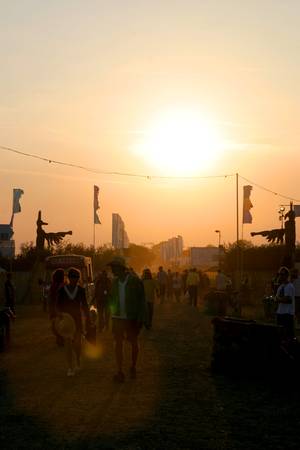Tackling Loss of Biodiversity
Interview with
Michelle - Somerset Wildlife Trust is one of 47 wildlife trusts across the UK. We're all individual charities but we all work collectively towards a "living landscape". We're trying to restore, recreate, and reconnect habitat across the country so that wildlife can thrive and people can feel alive again. We manage 82 nature reserves - we have over 300 volunteers who help us with that. We also run education programs, advocacy programs, trying to influence decision makers and make sure that wildlife is high up on the environmental agenda.
Ben - So, what are the challenges currently facing British wildlife?
Michelle - Well, wildlife is under threat from many quarters. Natural England produced a report this year which says that, on average, we are losing one or two species per year from this country, which is quite startling. We are on the brink of the 6th big extinction. Species are being lost at a phenomenal rate against what the baseline should be. In the UK, the threats are quite varied: habitat loss and fragmentation, development pressure, and pollution incidents are still a problem. 
What we're trying to do to address that is to identify habitats that are still in good nick, buffer those as much as possible with habitat creation, and to start connecting them up linearly so that wildlife have highways - corridors so that they can move. The problem you get, once wildlife is isolated and on its own, it becomes very vulnerable to major events: disease, inbreeding as well, it's a bit of a problem. We need to make sure that wildlife can move around, especially in the face of climate change, because whatever happens here - whether we get warmer, whether we get colder - wildlife is going to have to change its geographic range. We've got to facilitate that movement and just get stuff moving.
Ben - This being the international year of biodiversity, are you seeing greater awareness in the public? Are people more tuned in to the sorts of issues that we're looking at?
Michelle - I wish that I could say, "Yes, they are." Climate change has moved up the agenda rapidly in the last 10 years. People are all switched on to renewable energy, but what they don't seem to be understanding is that sustainability, true sustainability, means looking after all facets of the environment. Biodiversity is the most fundamental bit of that. If we lose wildlife, if we lose that great big biological variety that we have, then our ecosystem starts to suffer. This is where everybody turns off now! But ecosystems' goods and services, things like soil fertility, crop pollination, fuel, clean air, clean water, all those things rely upon biological diversity. Without our wildlife, we're in trouble - we are in big trouble. A good statistic that I heard the other day from an eminent scientist is that one in every three mouthfuls of food that you take has involved a pollinating insect at some point. So if we lose our insects; no more food.
Ben - What are you doing here at Glastonbury? What do you plan to get out of being part of the festival?
Michelle - Well, what we're hoping to do today is just raise general awareness about wildlife and the issues facing wildlife. We're encouraging people to come in today and to visit our traditional cider orchard and to make a pledge for wildlife. What is the one thing that you could do to support local wildlife in your area? Could you volunteer for your Trust? Could you join you local wildlife Trust? Maybe you will say that you will only eat conversation grazed meat for example. There are all kinds of things that you can do. People tend to go for the obvious ones like having a wildlife garden, but think outside the box! You could create a pond in your window box, for example. There are all kinds of things that you can do to just do your little bit for wildlife and "green up" your patch.
Ben - And how do you think the festival goers here are taking it?
Michelle - Pretty well really. We've got a good range of activities. We're doing face painting for the kids and we're doing willow crafts as well, just to get them back to nature and using materials. People are loving the orchard. They're just going in and sitting down and, hopefully, having a real think about how they impact on biodiversity and what they can do to do their bit for it.










Comments
Add a comment